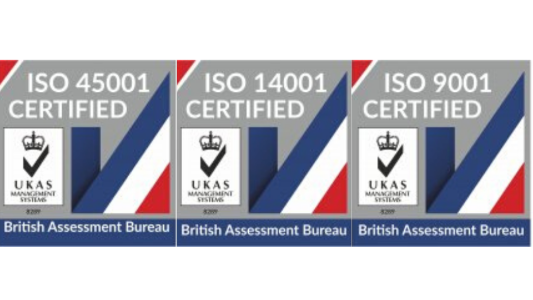Energy efficiency is about using less energy to provide the same service or product. The term energy efficiency can also be used to compare buildings:
If two buildings are supplied with the same amount of energy to provide heating and cooling, the building that can generate and retain the most – rather than producing less and then losing it – is the more energy-efficient.
A simpler example would be to install thermal insulation, or have a more efficient boiler in the building, to heat the room to the same temperature using less energy.
Energy conservation involves collectively re-thinking the way a business does things, adjusting individual behaviours and habits, to focus on the most useful, curbing the most extravagant and eliminating the most harmful emissions. Examples include turning the thermostat down one or two degrees in a heated room, turning off the light when you leave the room and curbing the use of business transport.
We are using up our planet’s natural resources, destroying vital habitats and polluting the air. Being energy efficient and reducing our carbon emissions is a crucial way of managing and limiting these impacts.
According to the World Wide Fund for Nature (WWF), the UK is one of the most nature-depleted countries in the world. More than one in seven native UK species faces extinction – including 30 per cent of birds – mainly due to pollution and toxic algae growth caused by climate change.
We have seen some positives during the Covid crisis, with energy demand and transport use falling dramatically and resulting in better air quality. However, as we generally ease lockdown restrictions, the threat is real once more, notably as the UK has previously failed to meet almost all of its UN targets on wildlife and habitats.
Energy management is the systematic process of understanding, controlling and reducing your organisation’s energy consumption and, if done effectively, can result in multiple benefits which include:
To be effective, it needs commitment, planning and sustained effort in all areas of the business – but particularly at senior executive level.
Energy management programmes incorporate the use of data, control technology and employee resources to facilitate strategic decision-making that aligns with overall business objectives and financial performance.
A no-brainer for large energy consumers but even with SMEs, if energy efficiency measures are implemented to their full potential, energy bills could be reduced by 30 per cent.
Employ an energy manager or a consultant. If you choose to go down the consultancy route, be careful and carry out proper due diligence – talk to existing customers, ask if they have experience in your sector, review case studies and so on. In short, do your homework and please, please don’t make decisions on fees alone – you get what you pay for and nothing is free!
Top Tips
At a time when many things are changing to meet the challenges of the future, here at Inteb we have just launched one of our most exciting ventures – our new website.
Even its name We Are Inteb sends out the message that, although we’re living in an electronic age, our people are the most important part of our business.
It’s designed to affirm that our customers come first in every service we offer to support UK businesses in reducing carbon emissions, optimising energy costs and meeting regulatory obligations.
It also reflects the Inteb Customer Charter and our commitment to making sure our teams of energy managers, surveyors, utility and environmental specialists are accessible, easy to work with and, most of all, reliable and trustworthy in our energy management and environmental partnerships.
Most of all, we want our services – in line with the ethos that’s the cornerstone of Inteb – to be clear and transparent.
Our own staff were involved in the content and design of the new website. After all, they are the ones who best know our customers’ needs and, armed with this knowledge, have helped to create a product that gives better access to The Inteb Way of carbon and energy management for your business.
The easy-to-navigate site tells you who we are, how we work, our people and, with a diverse range of case studies, how our customers are benefiting from our services and expertise.
The best thing is to see it yourself at www.weareinteb.co.uk
Let us know what you think – we’d be delighted to hear from you.

Another huge achievement for us this week comes with the news that, once again, we have been awarded a triple ISO accolade that confirms our commitment to putting our customers and our own workforce at the forefront of all Inteb’s operations.
These three separate ISO standards –1SO 9001 certification for Quality Management, ISO 14001 for Environmental Management and ISO 45001 for Health and Safety – demonstrate our high levels of service, operation and safety.
ISO 9001 shows that organisations not only claim they offer a quality service but also actually deliver it while ISO 14001 focuses on the environmental systems a business employs. ISO 45001 is designed to help organisations improve the health and safety conditions of employees to create a healthier, safer and risk-free workplace.
Certification for all three standards was awarded following rigorous independent external audit. We believe that meeting their wide-ranging criteria demonstrates how highly we place responsibility to our customers, our suppliers and to our staff on our ethical business agenda.
ISO accreditations have trust embedded in them and they show how much we value the business of our partners in the delivery of our energy management systems and advice.
They also indicate – via these independent accreditations – that we really mean what we say about the high level of services we offer and, with the consistency of these services, that we are leading the way among energy management consultancies.